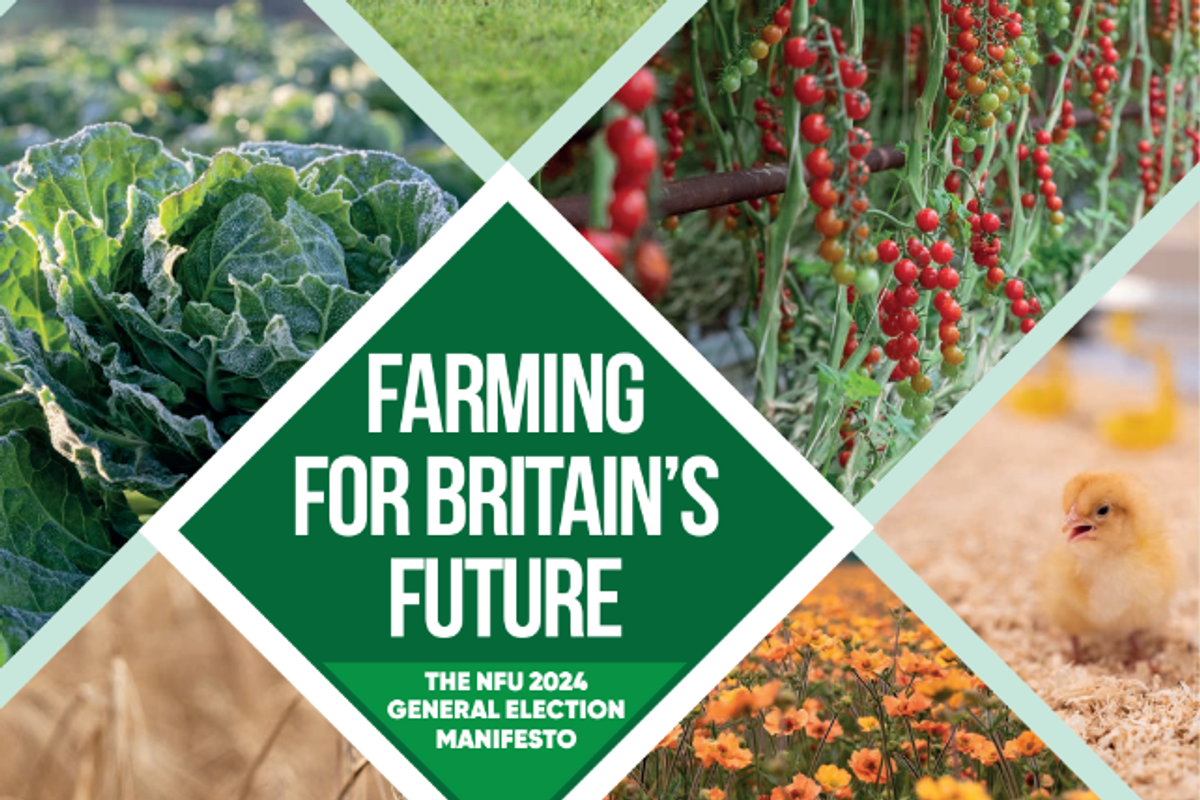Association of UK farmers National Farmers' Union (NFU) has published its manifesto ahead of the next general election urging all political parties to support policies which back British food and farming.
The manifesto leads with new research which demonstrates how much food and farming matters to voters in the run up to the general election, with strong appetite for greater government support to boost home-grown food production.
The research indicates that 84 per cent of people think food production targets are either as important or more important than environmental targets for farming, and that 82 per cent say it would be a good idea for the government to set targets to increase British food production.
Some 66 per cent think that the parties’ plans on farming will be one of the issues that affects who they vote for at the next general election, while the same number say that a commitment to a long-term plan for food and farming will be an important factor in who they vote for at the next election.
In its manifesto, NFU is calling for clear commitment to a budget that underpins sustainable domestic food production, delivers for the environment and supports all land tenures. It is also demanding to establish a new food security index and target, including a statutory duty to monitor and report on domestic food production levels each year and produce an enhanced policy-focused government food security report annually that assesses the short, medium and long-term viability of the food sector.
Other demand raised in the manifesto are a smooth and seamless transition to new environmental schemes, an annual food summit at No10 to ensure that food security remains high on the political agenda and identifying opportunities to increase market share of foods to source 50 per cent of food into the public sector from British farms.
NFU president Minette Batters said, “Food is something that connects us all – we cannot live without it. All our research shows that the British people really value our farmers and growers for the work they do day-in, day-out to feed the nation. Their support has been vital during the turbulence of the past few years with the Covid pandemic, the war in Ukraine, the cost-of-living crisis and increasing periods of drought and flooding.
“Shoppers want to be able to go into a supermarket and have the option to buy quality, high-welfare, environmentally-friendly food and we know the availability and affordability of food is high on people’s minds. But with food production under increasing pressure – not least from record production costs and the biggest shake up in agricultural policy since 1947 – we need policies in place that support British farming, with all Whitehall departments developing policy through the lens of food production.
“We know that the rural vote will be important in this election, but it’s clear that across the country, people living in towns and cities also want to know how parties plan to boost sustainable, home-grown food production as well as care for the environment and tackle climate change. And our data shows it will influence who they vote for at the ballot box.
“As a country, there are multiple priorities and challenges, and this manifesto shows that food security must be one of them, with our farm businesses supported to invest and grow for the benefit of everyone.
“We must not fall into the trap that we can simply import our food needs from other countries – we’ve seen that approach fail before with empty supermarket shelves and we know there is strong public opinion against importing food from elsewhere produced in ways that would be illegal here. That’s why we are asking for targets for British food production, just as the government has rightly legislated for targets on the environment, green energy and climate change. Food has to be given the same status.
“Alongside producing fantastic food, we are the custodians of our iconic countryside and farm businesses are often the beating heart of rural communities. We provide jobs for more than four million people and contribute billions to the economy. Add that to green, renewable fuel, natural fibre and a vibrant flower-growing sector, British farmers deliver so much for the nation.
“What farmers, growers and the public need now is to see practical and progressive policies coming from all political parties which are investing in a future where British food and farming can thrive.”


